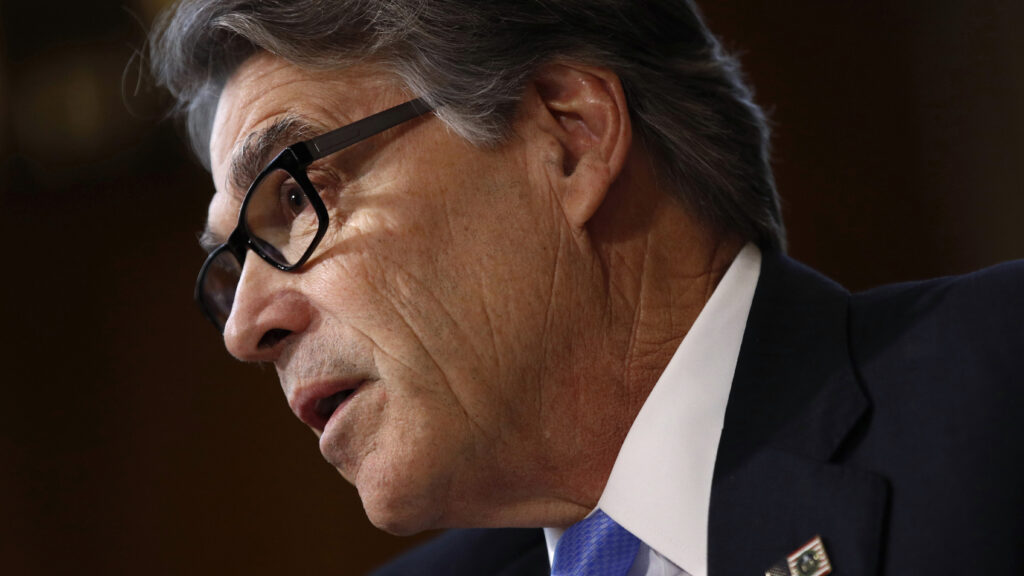DENVER — When former Texas Gov. Rick Perry strode onto the stage at the largest ever psychedelics conference last month, he knew he was an unusual choice to open the event. Who would expect to hear from a “knuckle-dragging, right-wing Republican former governor of the state of Texas,” he asked the crowd, miming the sign of a cross in mock horror.
Psychedelics, which were widely associated with hippies and the anti-war movement in the ‘60s, are no longer partisan. Growing awareness of the trauma suffered by U.S. combat veterans in Iraq and Afghanistan has driven a wave of support among right-wing political figures, who see the potential use of psychedelic therapy for post-traumatic stress disorder as a way to help an important constituency.
advertisement
Perry said he and Rick Doblin, the founder of the Multidisciplinary Association for Psychedelic Studies (MAPS), which organized the conference and has led efforts to develop and legalize MDMA as a treatment for PTSD, “don’t agree on everything.” But they are united “in the effort to find the solution for post-traumatic stress for our veterans.”
No psychedelics have been approved in the U.S. as medical treatment, but MAPS says the results of two late-stage clinical trials provide the evidence needed to file with the Food and Drug Administration later this year for approval of MDMA-assisted therapy for PTSD. Although prominent Republicans have long fought legalization of mind-altering drugs, testimony from veterans has challenged that approach.
“Anyone that considers themselves a patriot, or would do anything for the veterans or service members in this country, is really starting to listen and come around to the idea that this is what it takes,” said Ambar Capone, who co-founded a nonprofit called VETS (Veterans Exploring Treatment Solutions) along with her husband, Marcus, a former Navy SEAL who’s benefitted from psychedelics he took in other countries. “These men and women deserve it.”
advertisement
Bipartisan support is politically useful as a growing number of states consider psychedelics-related policies, such as putting aside state funds to study the drugs, as in Texas and Kentucky, and introducing legalization and decriminalization measures, as in Colorado and California. The cross-the-aisle support for psychedelics means that, should the FDA approve MDMA for PTSD, the Drug Enforcement Administration is less likely to face political blowback for rescheduling the drug — currently branded by the DEA as dangerous and without any medical use.
Veterans are essential to right-wing support for psychedelics. “It’s not, ‘Let’s end the drug war tomorrow,’” said Jon Lubecky, a veteran and former participant in a MAPS clinical trial of MDMA who serves as the group’s veterans & governmental affairs liaison. “But Republicans are very comfortable publicly talking about using psychedelics for mental health in a controlled environment.”
The Capones spoke with Perry about their work before he publicly declared his support for medical psychedelics, saying he personally knew several veterans who were helped by psychedelic treatment. That led to Perry publicly supporting a 2021 Texas bill that directs the Texas Health and Human Services Commission, a government agency, to study psychedelics as treatment for veterans with PTSD.
Other Republican politicians have also gone public with their support, making psychedelics an increasingly bipartisan issue.
Texas Republican congressman Dan Crenshaw currently has 13 co-sponsors on a bill that would create $75 million in grants to study psychedelics as treatment for active military personnel; six of the sponsors are Democrats and seven are Republicans. “They’ll fight like cats and dogs over a lot of things,” said Lubecky. Yet psychedelics have bridged the political gap.
Veterans are such a prominent group in support of new treatments for PTSD in part because military trauma is socially acceptable, added Lubecky. “I get why a rape victim would not necessarily want to go traipse around Capitol Hill, going from office to office saying, ‘Hey, I went to a college party and I was raped.’ Your trauma is a very intimate thing,” he said. Veterans have an advantage of being able to say they served in Iraq or Afghanistan, came home with PTSD, and get sympathy rather than questions.
Given veterans’ political clout, though, both Lubecky and Capone said there’s a risk of veterans being exploited by groups promoting psychedelics in an effort to line up more donations and support. “There’s a push — maybe if we just put enough veterans in front, maybe if we just turn up the heartstrings and pressure that we can get more traction,” said Capone.
Her husband has traveled outside the U.S. for treatment with ibogaine (a psychedelic found in the iboga plant) and 5-MeO-DMT (another natural psychedelic found in desert toads), and a psychedelics fundraising organization, which Capone chose not to name, asked him to speak to a donor the day after an experience on the drugs, when he was still fragile.
“We should never have been asked to do that,” she said. The Capones started their own organization in part because they were frequently asked to fundraise and make connections for other groups. “At some point, it didn’t feel good anymore, not knowing where the money was going and how it was being used,” she said.
Even as veterans are the face of psychedelic patients, Lubecky said he sometimes gets the sense that veterans aren’t accepted by many of those working on psychedelic treatment and activism. Although right-wing politicians and donors are supportive, he’s aware that among progressives that have traditionally advocated for psychedelics, military figures are an unusual presence. “I didn’t understand what the term microaggressions meant before I was a veteran in the psychedelic community,” he said.

